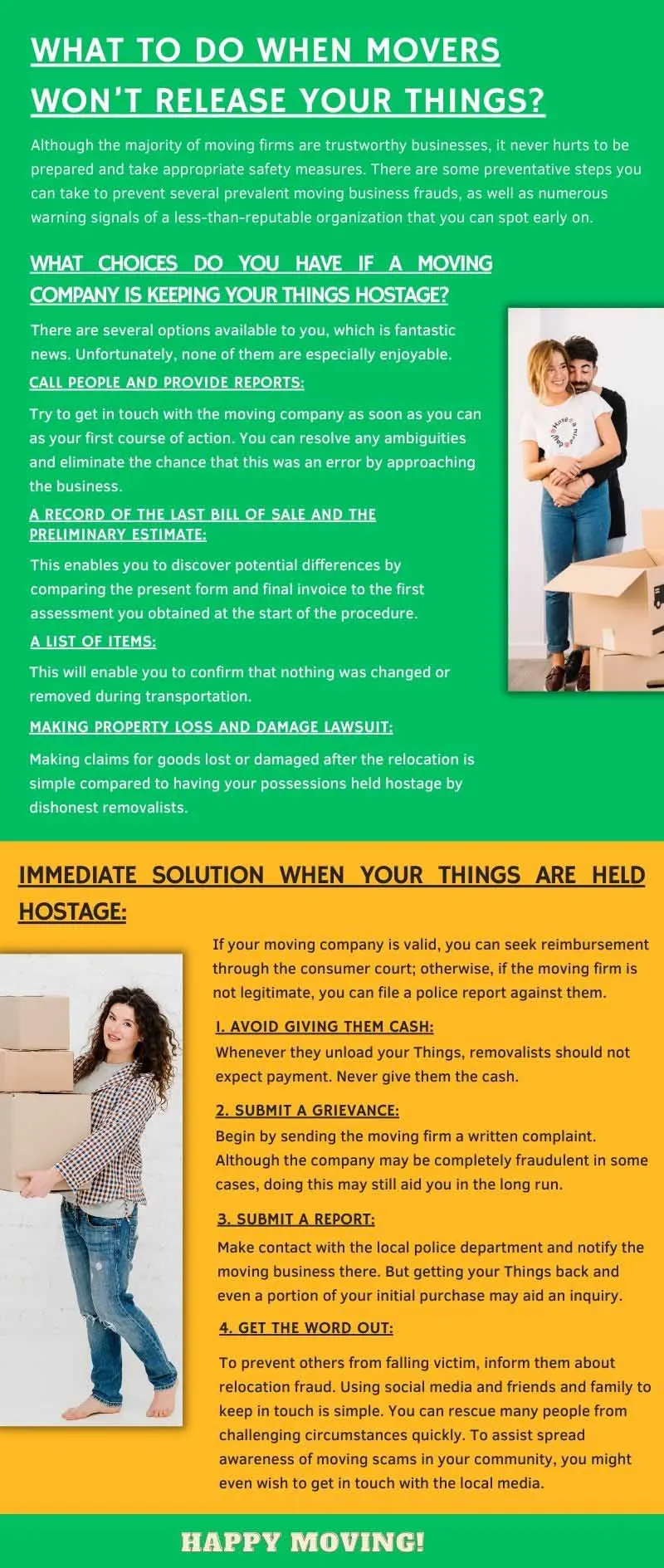It’s challenging to move. Relocating is one of the most trying things anyone can go through. It is costly, time-consuming, and frequently laden with problems. One such pitfall is moving business scams, which may make an already tense scenario into a hellish experience. In India, there are innumerable moving firms, and while the greater part of them is friendly, some are little more than con artists.
Together with other scams like weight bumping and overbilling, these dishonest businesses are notorious for abducting personal items or keeping possessions hostage in exchange for money. Fortunately, with careful planning and research, you can identify these dishonest fraudsters before they steal your valuables.
Although the majority of moving firms are trustworthy businesses, it never hurts to be prepared and take appropriate safety measures. There are some preventative steps you can take to prevent several prevalent moving business frauds, as well as numerous warning signals of a less-than-reputable organization that you can spot early on.

This article will discuss some of the most typical relocation business frauds, how to identify them, and how to proceed if the moving company is taking your Things, hostage.
How To Spot A Moving Company That Is Trying To Con You?
Scams involving moving companies do occur, although they are rare. A homeowner may frequently hire a local or long-distance removalist after receiving one of their finest free quotations ever and believing they are saving a lot of money, only to discover they are spending much more than they anticipated. Even worse, current research indicates that Indians move less frequently every year.
For moving companies, the shortage of relocations is bad news since it fuels fierce rivalry and presents a golden chance for moving frauds. Fortunately, there are indicators that the firm you are dealing with isn’t trustworthy, so as long as you thoroughly check out the removalists, you must be able to prevent having your belongings taken hostage.
Also Read: How to Pack and Move Wardrobe Without Stressing Out
What Choices Do You Have If A Moving Company Is Keeping Your Things Hostage?
Imagine the worst occurs and the moving company you choose holds your Things, hostage, even after you’ve settled your invoice. Eventually, what? There are several options available to you, which is fantastic news. Unfortunately, none of them are especially enjoyable.
Call People And Provide Reports:
Try to get in touch with the moving company as soon as you can as your first course of action. You can resolve any ambiguities and eliminate the chance that this was an error by approaching the business. Occasionally mistakes happen, and if they are genuine, you want to allow the moving business to put things right. Any reputable moving company will take claims of missing, treated improperly, and particularly withheld valuables seriously. In the event of a dispute, make sure all payment demands are made in writing when speaking with moving companies. Ask for the following details while acquiring data through preliminary communications:
A Record Of The Last Bill Of Sale And The Preliminary Estimate:
This enables you to discover potential differences by comparing the present form and final invoice to the first assessment you obtained at the start of the procedure.
A List Of Items:
This will enable you to confirm that nothing was changed or removed during transportation.
Making Property Loss And Damage Lawsuit:
Making claims for goods lost or damaged after the relocation is simple compared to having your possessions held hostage by dishonest removalists.
During a difficult relocation, it seems to be one more annoyance you’d prefer not to cope with, but in most cases, competent moving companies will take your accusations properly if they can be supported.
Moving business employees nearly usually refers to the stockpile collected by the driver before your shipment is loaded to confirm the validity of a claim.
Drivers or their assistants will (or should) attach a little identification tag to each item that needs to be transported during the inventory procedure.
They will then list every item’s description, room of origin, and present state on their stockpile form.
When you receive your bookcase without a drawer and with a large gash down the front even though it had only a slight indentation on the top when your cargo was loaded, you possess a valid claim.
You need to inspect each item from the stockpile when you receive them inside your house during delivery.
You must submit a suit for loss when there are lacking quantities when the vehicle is empty, and the matching items cannot be found.
Throughout the pre-move initial assessment, it is crucial to becoming familiar with each company’s claims procedures as well as all aspects of the relocation field.
Check the fine print carefully. Since many specify that both sides will accept to engage in formal negotiation to address the dispute if a suitable resolution cannot be found.
While questioning removalists, it would be better to cross them off your list if they are unable or incapable of describing their compensation processes.
Also Read: How to Pack Gym Equipment for Moving
Immediate Solution When Your Things Are Held Hostage:
If your moving company is valid, you can seek reimbursement through the consumer court; otherwise, if the moving firm is not legitimate, you can file a police report against them. They will recover your Things from the scammers and punish them under the IPC section through court.
Be Careful Of Moving Scams:
Contrary to popular belief, this scenario occurs frequently, and many people fall prey to similar moving frauds. Follow these instructions if you ever find yourself in a similar position and are coping with dishonest movers to retrieve your stuff and stop others from falling prey.
1. Avoid Giving Them Cash:
Whenever they unload your Things, removalists should not expect payment. Never give them the cash. After you pay, there is no assurance that they will genuinely hand over your possessions. Even after you pay them, they can still leave with a truck loaded with goods.
2. Submit A Grievance:
Begin by sending the moving firm a written complaint. Although the company may be completely fraudulent in some cases, doing this may still aid you in the long run.
If you decide to file a lawsuit, you’ll wish to keep a record of your petition in case you must submit evidence to the court.
3. Submit A Report:
Make contact with the local police department and notify the moving business there. But getting your Things back and even a portion of your initial purchase may aid an inquiry.
The business license of the corporation might be revoked if there is a compelling argument against it. Some moving businesses operate without permits, in which case they are frequently subject to hefty fines.
Also, you want to report the scam committed by the moving firm to the police’s highest-ranking official. This will almost always make things right for you, and complaining to higher-ups may prevent other people from falling victim to the same company’s scams.
4. Get The Word Out:
To prevent others from falling victim, inform them about relocation fraud. Using social media and friends and family to keep in touch is simple. You can rescue many people from challenging circumstances quickly. To assist spread awareness of moving scams in your community, you might even wish to get in touch with the local media.
You don’t want to fall victim to a moving scam, so when looking for a moving business, prepare yourself and watch out for warning signs. It is your duty as a customer to conduct thorough research before choosing a trustworthy firm.
It is impossible to ensure that you won’t become a victim of a relocation scam. But if you take the aforementioned actions, it will help lower your risk.
Also Read: How Can I Prevent Stealing Of My Movers?
FAQ
If you haven’t settled in full for the services outlined in your deal, a moving company may certainly hold your items. This is particularly evident if you leave your possessions in the warehouse of your moving business for a considerable amount of time without paying the storage fees. But, the relocation firm has no permission to keep your Things hostage once you’ve fully settled for all the relocation services you required.
This con can have expensive and stressful repercussions. The relocation might be wrecked, and victims frequently end up paying more cash than they initially committed to. When this occurs to you, it is crucial to take action immediately so that you can obtain your stuff back.
Hostage is a big illegal act. You might be able to make a claim against the moving firm if you lose any of your possessions or even a single scratch during the hostage situation. You will need to present proof of the loss or damage. You can claim compensation in consumer court. Also, you have the option of suing them for the hostage of your Things.


